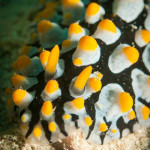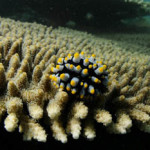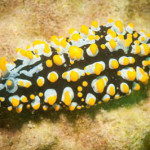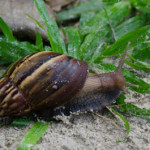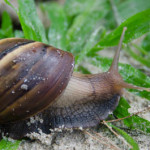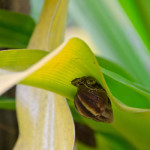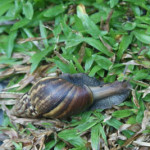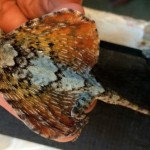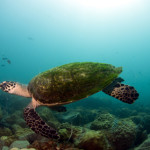Oriental Whip Snake (Aheatulla prasina)
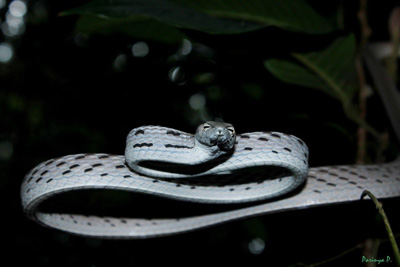 Last Observed: December 2015
Last Observed: December 2015
Observed By: Parinya Pawangkhanant
The Oriental Whip Snake is presumably named for the tightly coiled posture it adopts. Its colour can vary from light brown to dark green.
Wikipedia tells us that they can reach 1.8 metres in length with a tail of 60cm. Hang on – snakes have tails? Where does the tail end and the snake begin? (Pause)
OK I know all about snake tails now. Read here for an excellent explanation. Basically it’s the bit after the snakes ribs stop. Fascinating.
This snake feeds on small reptiles and amphibians.
But you want to know if it’s poisonous or not don’t you? The answer is yes – but only mildly – and they aren’t considered to be a threat to people, in fact they are apparently popular pets.
Oriental Whip Snake Wikipedia
Phyllidia
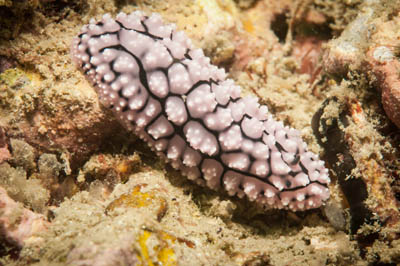
Observed: Koh Chang, 2015
Observed By: Jonathan Milnes
Phyllidia are a family of sea slugs that include the specimen pictured and its close relative the Varicose Wart Slug. This example lacks the bright yellow colour of the Varicose wart slug but is very similar in size and morphology. We’re not sure which species of Phyllidia it actually is.
Phyllidia Wikipedia
Varicose Wart Slug (Phyllidia varicosa)
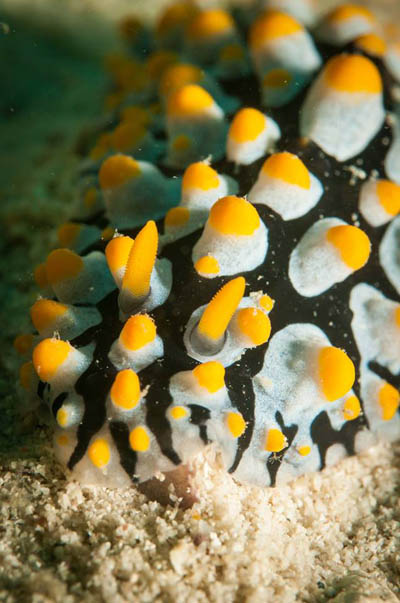
Image Copyright Jonathan Milnes
Observed: Koh Chang, 2015
Observed By: Jonathan Milnes
Surely no creature deserves to be christened with a name as repulsive as “varicose wart slug”? Especially not something as brightly coloured, weird and wonderful as this marine mollusc.
The varicose wart slug is found in the tropical marine environment of koh Chang and also all across the Indian and pacific ocean region.
Image Copyright Jonathan Milnes
Image Copyright Jonathan Milnes
Image Copyright Jonathan Milnes
Phyllidia varicosa Wikipedia
Giant African Land Snail (Achatina fulica)
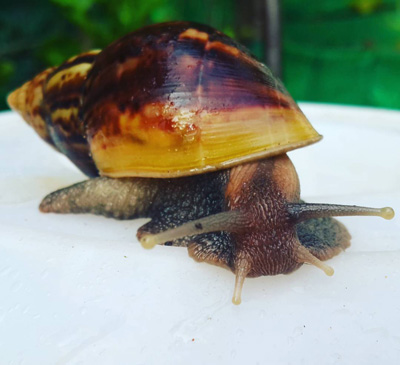
Image Copyright Perry Stevens
Observed: Koh Chang, October 2015
Observed By: Perry Stevens, David Vinot
You wouldn’t think it to see them crawling slowly around Koh Chang but the giant African land snail is one of the top 100 invasive species of the world.
They carry disease to native plants (and also humans!) and are also voracious and destructive feeders.
I guess you can’t blame them for being successful but they’re big (up to 20cm long), disease ridden, slimy, oh and on occasion they resort to cannibalism.
Achatina fulica Wikipedia
Pilot Whale (Globicephala macrorhynchus)
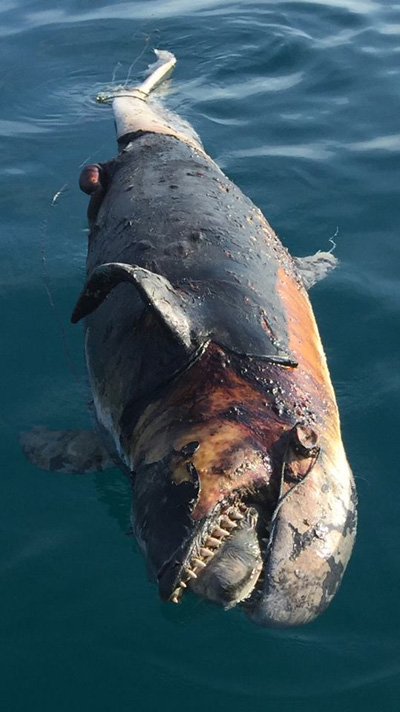
Image Copyright Stanley van Broekhuizen
Observed: Koh Chang, December 2015
Observed By: Stanley van Broekhuizen
It would be nice to pretend that Koh Chang is a happy natural environment that isn’t affected by the actions of man. But that isn’t true and one of the purposes of this website is to draw attention to the local species that are most threatend.
Sadly dead pilot whales, like the one pictured, and also dolphins wash up on the shores of Koh Chang on a regular basis.
The principal cause of death is drowning when they are caught up in fishing nets and unable to surface to breathe. there are supposed to be strict fishing restrictions within the waters of the Koh Chang Marine National Park. And outside these waters Thailand faces significant challenges to tackle illegal and unsustainable fishing. And sadly these large members of the dolphin family are the victims of these fishing practises.
Pilot Whale Wikipedia
Other Koh Chang Mammals
Thanks everyone – the animals just keep on coming. There’s 165 individual animal pages on the site now and maybe another 50-70 waiting for me to get around to putting on. It’ll happen but please bear with me if your beast hasn’t appeared yet – it will! Doing this whole exercise just reinforces what a […]
Right, we’re making good progress! Most of our animal backlog has now been cleared and we now have 82 different Koh Chang animal species on the site. Also, importantly, we’ve added a page with lots of animal identification sites and resources. We particularly need some undersea assistance so all you divers please get snapping and […]
Asian Elephant (Elephas maximus)
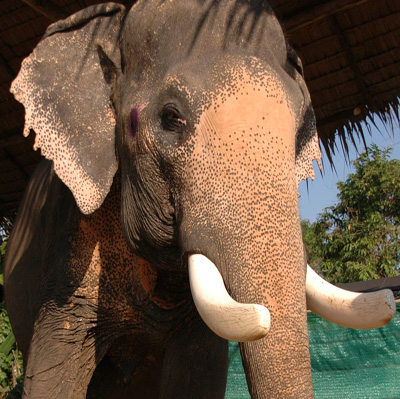
Image Copyright Jonathan Milnes
Observed: Koh Chang, December 2015
Observed By: Jonathan Milnes
Whilst there are no truly wild elephants on Koh Chang the numerous elephant trekking operations mean that they are a common sight on the island. They live in a jungle environment and feed on jungle plants so they are part of the island’s wildlife ecosystem whether wild or domesticated.
The Asian Elephant is an endangered species in the wild so the domesticated animals involved in Elephant Trekking are at least helping to ensure the cvontinued survival of the species.
Asian Elephant Wikipedia
More Koh Chang Mammals
Wild Boar (Sus scrofa)
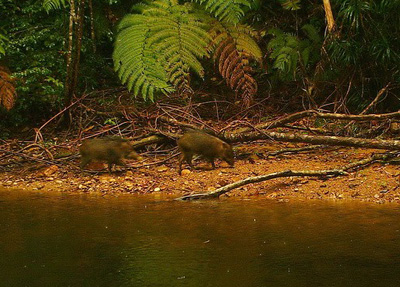
Image Copyright สุธนัย ครุพานิช
Observed: Koh Chang, December 2015
Observed By: สุธนัย ครุพานิช
The Wild Boar is one of Koh Chang’s largest land mammals. The wild boar is extremely widespread around the world and is not classed as endangered on a global scale. They are the ancestors of domestic pigs and like their domestic relatives they are omnivores that will eat almost anything.
They are shy creatures but males especially can be aggressive if disturbed. These boar were photographed using a concealed camera trap.
Wild Boar Wikipedia
Rasbora Sumatrana
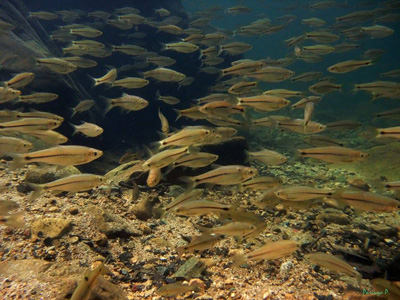
Image Copyright Parinya Pawangkhanant
Observed: Koh Chang, December 2015
Observed By: Parinya Pawangkhanant
This freshwater fish is found in the rivers and streams of Koh Chang. It is a member of the Ray-Finned Fishes (Actinopterygii) and frows to a maximum length of 13cm.
Rasbura Sumatrana Fishbase
Barred Mudskipper (Periophthalmus argentilineatus)
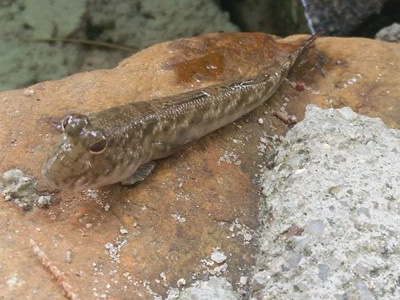
Image Copyright Paweena Khamsap
Observed: Koh Chang,
Observed By: Paweena Khamsap
You will observe the Barred Mudskipper of Koh Chang around mud-flats or mangrove areas. They are fish that can live out of water. How cool is that?
The are able to walk, well – more like a shuffle – on their pectoral fins.They can also, when threatened, catupult themselves into the air by contorting their muscular bodies.
They are also able to breathe outside the water through their skin and their mouth – but in order to do so their skin must remain moist.
Mudskipper Wikipedia
Oriental Bay Owl (Phodilus badius)
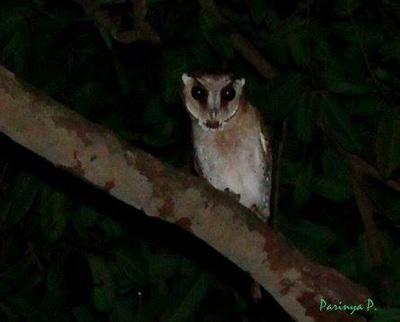
Image Copyright Parinya Pawangkhanant
Last Observed: December 2015 – Koh Chang
Last Observed By: Parinya Pawangkhanant
The Oriental bay owl is a species of bay owl, usually these are classified with barn owls. Like most owls it is a nocturnal hunter and has excellent night vision. And also like other owls it is a most excellent animal.
In addition to being found on Koh Chang it is distributed throughout Southeast asia.
Oriental Bay Owl Wikipedia
 Last Observed: December 2015
Last Observed: December 2015


